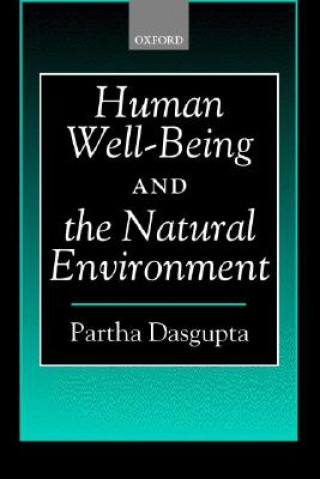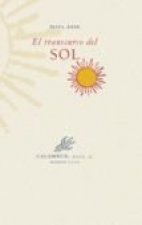
Versand
Kaufberater





Passt nicht? Macht nichts! Bei uns ist die Rückgabe innerhalb von 30 Tagen möglich
 Geschenkgutschein
In einem beliebigen Wert
Geschenkgutschein
In einem beliebigen Wert
Mit einem Geschenkgutschein können Sie nichts falsch machen. Der Beschenkte kann sich im Tausch gegen einen Geschenkgutschein etwas aus unserem Sortiment aussuchen.
Human Well-Being and the Natural Environment
 Englisch
Englisch
 399 b
399 b
30 Tage für die Rückgabe der Ware
Das könnte Sie auch interessieren


In Human Well-Being and the Natural Environment, Partha Dasgupta explores ways to measure the quality of life. Although the problem pervades a number of academic disciplines, it is not confined to the academic realm. International organizations regularly publish cross-country estimates of the quality of life, journalists and commentators publicize them, and national governments are obliged to take note of them. Today, quality-of-life indices broker political arguments and together form a coin that even helps purchase economic and social policy. It is therefore ironic that indices of human well-being in current use are notably insensitive to our dependence on the natural environment, both at a moment in time and across generations. Moreover, international discussions on economic development in poor regions all too frequently ignore the natural resource base. In developing quality-of-life measures, Professor Dasgupta pays particular attention to the natural environment, illustrating how it can be incorporated, more generally, into economic reasoning in a seamless manner. The result is a treatise that goes beyond quality-of-life measures and offers a comprehensive account of the newly emergent subject of ecological economics. The connections between biodiversity, ecosystem services, resource scarcities, and economic possibilities for the future are developed in a quantitative, but accessible, language. Such familiar terms as 'sustainable development', 'social discount rates', and Earth's 'carrying capacity' are given a firm theoretical underpinning. The theory that is developed is then put to use in extended commentaries on the economics of population, poverty traps, global warming, structural adjustment programmes, and free trade. The author shows that, whether we are interested in valuing the state of affairs in a country or in evaluating economic policy there, the index that should be used is the economy's wealth, which is the social worth of its capital assets. The concept of wealth adopted here is a comprehensive one, including not only manufactured assets, but also human capital, knowledge, and the natural environment. Wealth is contrasted with such popular measures of human well-being as gross national product and the United Nations Development Programme's Human Development Index. Although the theory developed here is not restricted in its applicability to the circumstances facing poor countries, the exposition is prompted by the author's concerns over the dilemmas facing poor people in those parts of world. Repeatedly, he applies the theory to data on poor countries. The picture that emerges is a sobering one and contrasts sharply with that portrayed in the contemporary literature on economic development. The book has been written not only for fellow economists, but also for students of economics, environmental studies, political science, and political philosophy. It is intended even more broadly for the general citizen interested in human well-being and the centrality of the natural environment to our everyday lives.
Informationen zum Buch
 Englisch
Englisch
Kategorie


 Kontakt
Kontakt Wie einkaufen
Wie einkaufen


























